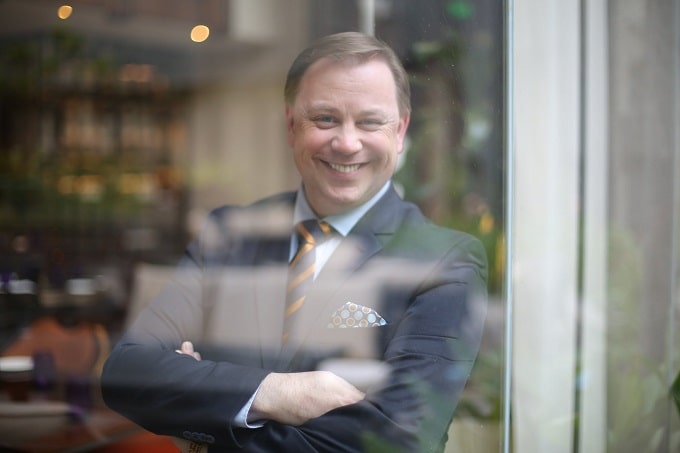True luxury isn’t defined by price, but as a rule, luxury doesn’t come cheap or easy.
researchers have identified an innate human quest for authenticity as a principle psychological motivator playing perhaps the most important role in Psychology behind Luxury
True luxury isn’t defined by price, but as a rule, luxury doesn’t come cheap or easy. This is why only some of us are able and willing to spend the necessary amount of money required to acquire luxury goods or services. Nevertheless, luxury’s universal appeal cannot be denied—all of us want it. But why exactly is this?
What exactly lies at the heart of a luxury brand’s extraordinary appeal and why don’t people just buy an—often cheaper—non-luxury alternative that can essentially fulfil the same function as the luxury product? While the exquisite craftmanship and rich quality of luxury products certainly have their own lure and are an integral part of what constitutes luxury, these considerations aren’t actually the decisive motivation for most luxury consumers.
I mean, why would people decide to pass up a fake Rolex in order to pay full-price for an authentic one—even if they look identical? Despite looking exactly the same, as owners we just know that we don’t have a real luxury product.
The reasons for this are rooted in the Psychology behind Luxury. Firstly, researchers have identified an innate human quest for authenticity as a principle psychological motivator playing perhaps the most important role in creating the appeal of luxury brands. This is because the sentimentality of the item—that memory or feeling that comes from having purchased or acquired the real thing—is an integral part of the reason that we seek authenticity. In other words, treating yourself to a pair of fake Christian Louboutin brand boots really creates the same psychological effect as having really not treated yourself at all.
Secondly, for some consumers, a luxury good can go a long way in increasing self-esteem or providing a sense of belonging and accomplishment. This is related to our psychological drive for identity and belonging.
Thirdly, buying luxury goods or experiencing luxury can be the ultimate retail therapy. Purchasing luxury goods make us feel good. Acquiring luxury goods gives us a sense of satisfaction with our lives and the direction it is heading in. It conveys a sense of differentiation, identity and self-expression.
Nearly all of these motivations to buy luxury are psychologically related to the strong emotions that we attach to purchasing exclusive brands. In luxury, buying is emotionally driven—that feeling of accomplishment from hard work, or the satisfaction of gaining acceptance within certain social circles. It is precisely for this reason that luxury brands invest a lot of money in marketing a lifestyle of comfort and good taste.
When we buy luxury, we aren’t just buying a physical item. We’re also buying the opportunity to engage in a desirable lifestyle and to embrace a desirable identity. Unlike other markets, luxury brands are able to serve as a unique distinguishing mark identifying people with peers from the same social group. The distinction of acquiring a social status in turn effectuates positive feelings of acceptance and increased self-esteem.
While the emphasis and desires of luxury consumers may vary from one generation to the next, the central purpose of luxury brands, that is, providing a sense of exclusivity and accomplishment, will always remain the luxury market’s central driving force. Luxury’s appeal is timeless. In luxury sales, you want even the very experience of making that decision to purchase your product or service to already evoke that feeling of exclusivity on the part of your clients.
In other words, luxury is not necessarily just simply about designing the highest-quality products or employing the best manufacturing techniques or craftmanship. While luxury customers obviously care about the quality of the product, the reason we ultimately decide to buy luxury as opposed to other brands is because of our psychological desire to communicate something about ourselves. Luxury has a unique potential to fulfill that psychological longing for a sense of accomplishment. In fact, luxury purchases have been shown to oftentimes trigger the release of dopamine, the feel-good hormone. People buy or desire to experience luxury for the purpose of making themselves or others feel good.
These emotions that drive luxury purchases are what any luxury expert must learn to read, interpret and use in order to guide and predict those behaviours that create buying patterns. The real luxury expert is not just an expert on luxury products, brands and lifestyles, but is essentially an expert in human behaviour. You need to know how to trigger psychological desires in prospects. Your brand needs to be able to satisfy their most basic human psychological needs.
The ability to convey the right brand identity and brand message so as to be able to generate the right psychological response at exactly the right time, is a most vital key to inciting luxury consumers into willingly making those all-important purchases.

Paul russell
Paul Russell is co-founder of Luxury Academy London, a multi-national training company with offices in London, Mumbai and Visakhapatnam. Luxury Academy London specialise exclusively in the luxury industry and deliver training in leadership, communication and business etiquette training for companies and private clients across the globe.
Prior to founding Luxury Academy London, Paul worked in senior leadership roles within luxury hospitality. A dynamic trainer and seminar leader, Paul has designed and taught courses, workshops and seminars worldwide on a wide variety of soft skills.